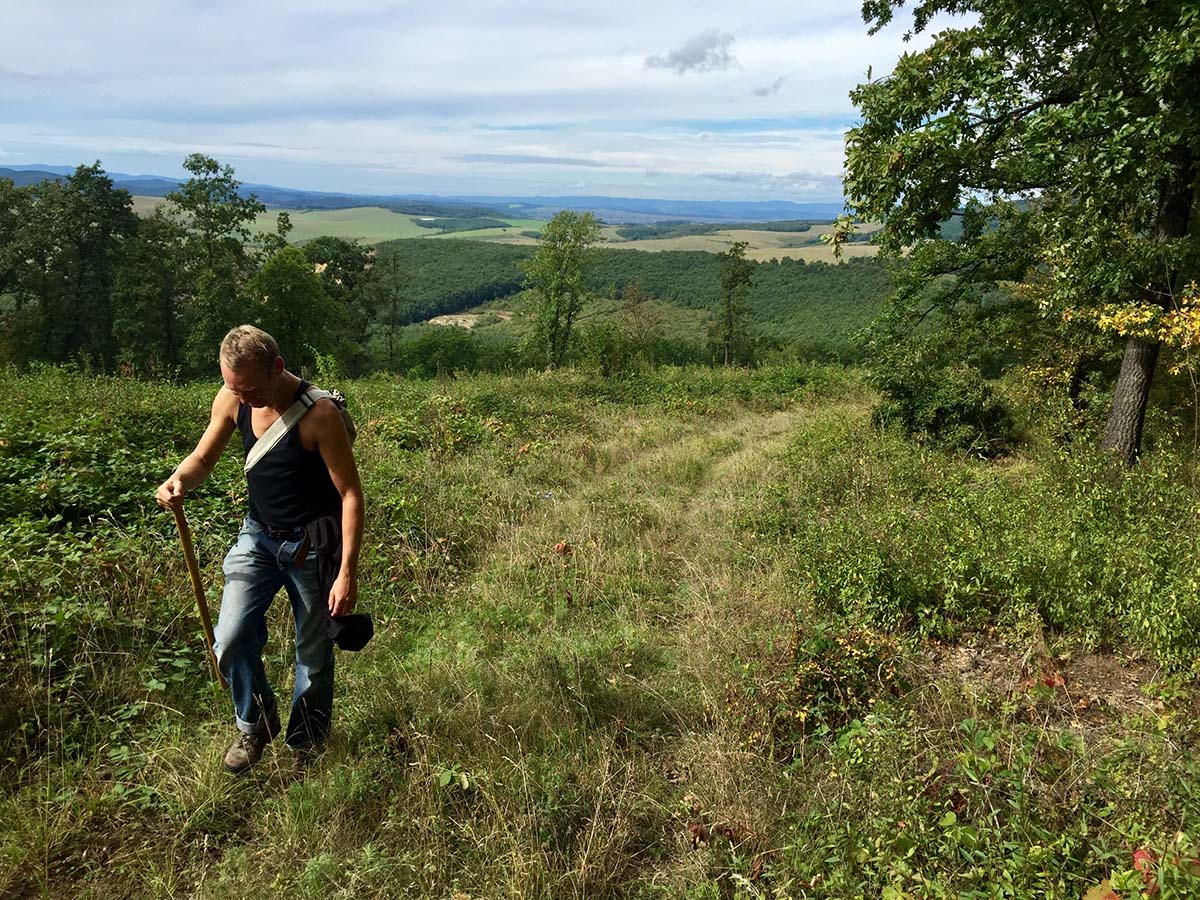Bedepuszta is a tiny village an hour’s drive from Budapest, a speck in the north Hungarian uplands, where the road ends without ceremony and ten kilometres of nature stretch forth in each direction. A couple sits on the porch of The Yonder Bar, surveying the landscape. Like Simba, everything the light touches is theirs – they have bought the entire village.
Elroy Thümmler came to Hungary from Holland full of curiosity in 1987. “I started coming back every year,” he says, “and I was really involved in this period after the fall of the Wall, where everything seemed possible. The spa parties had belly dancers and Lebanese food, you could party in the theatre, everyone was so positive. At the time I had a comic store in Amsterdam but my dream was to live in Hungary.”
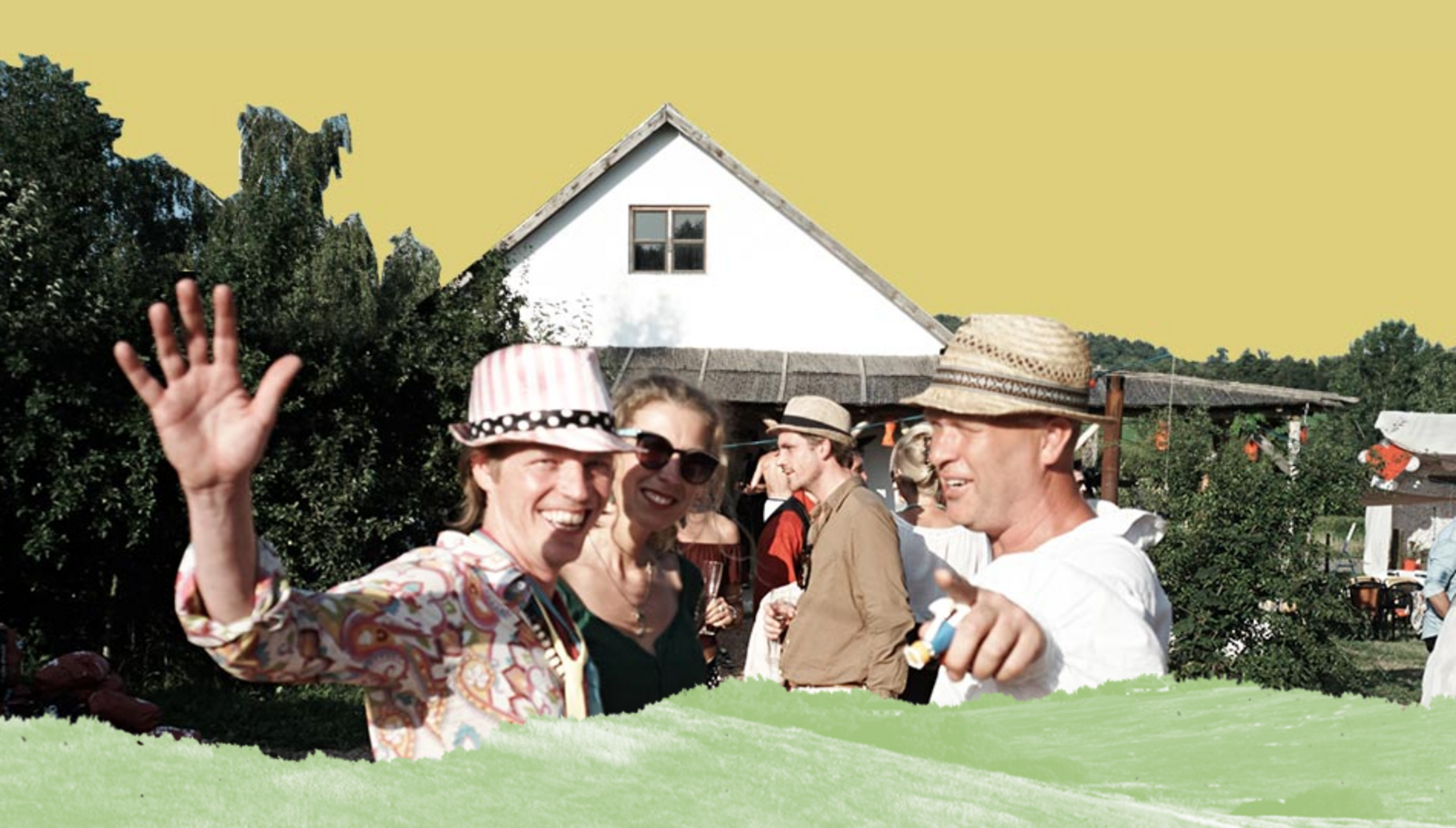
Thümmler’s passion for Budapest brought him to the Sziget Festival, where he was hired on the spot to sell tickets in Holland. Eventually, that extended to scouting Dutch talent for the Sziget stages, as well. “I got my own stage,” he says. “It was called ‘Holland meets World.’” Thümmler was enthralled by the diversity of acts at Sziget and took to Facebook to promote the festival to Dutch audiences.
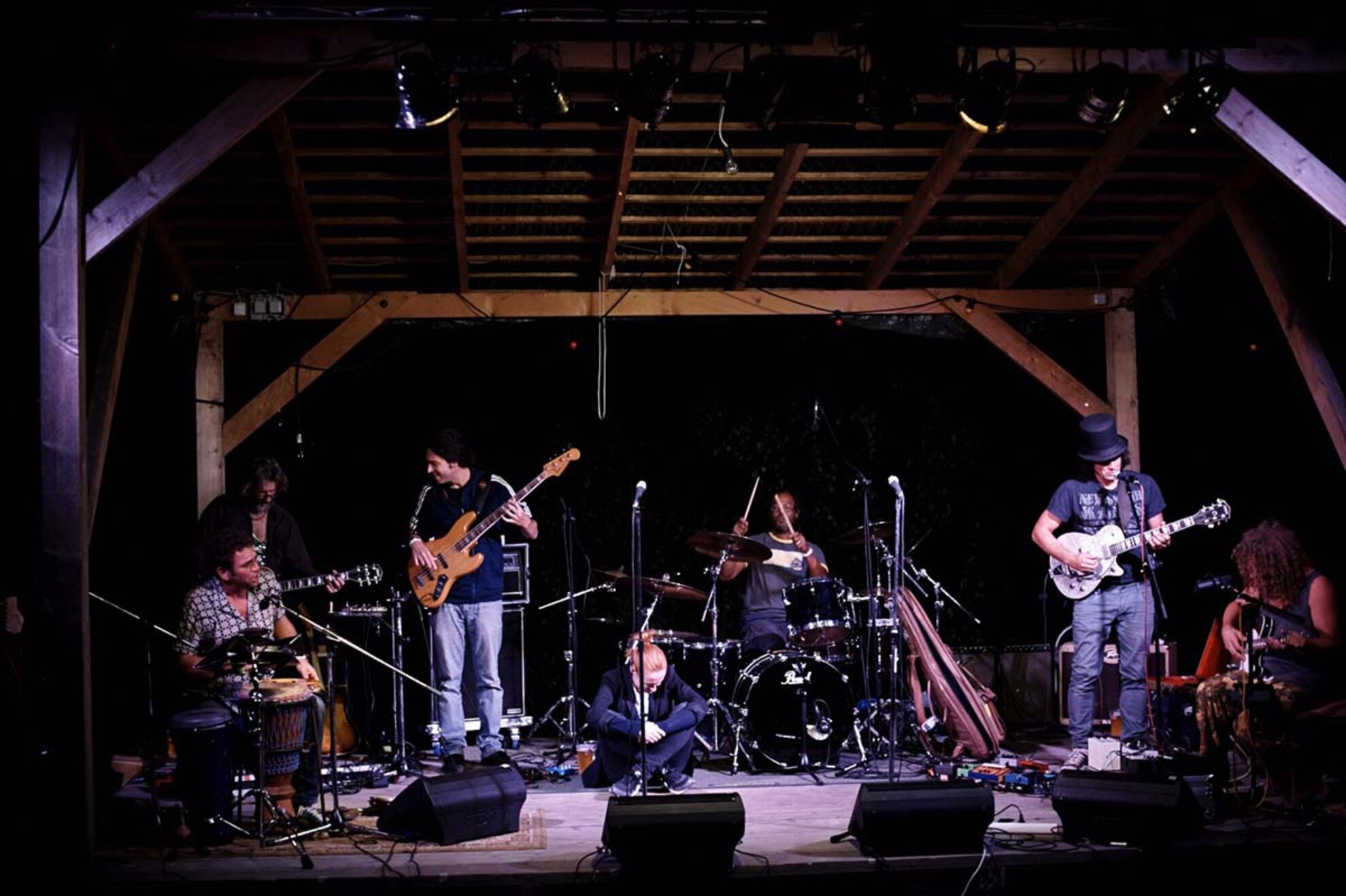
Dutch visitors grew from 160 to 16,000. “At one point,” Thümmler remembers, “there weren’t enough planes so we started ‘Sziget Trains’, bringing thousands of people from the Netherlands, with a disco in it. The first year we even had an oyster bar. We would stop in all the big cities in Holland, a 20-hour trip! Now we do it more professionally, just one city to Budapest, as fast as we can. But still with the disco wagon.”
The first version sounds infinitely more fun.
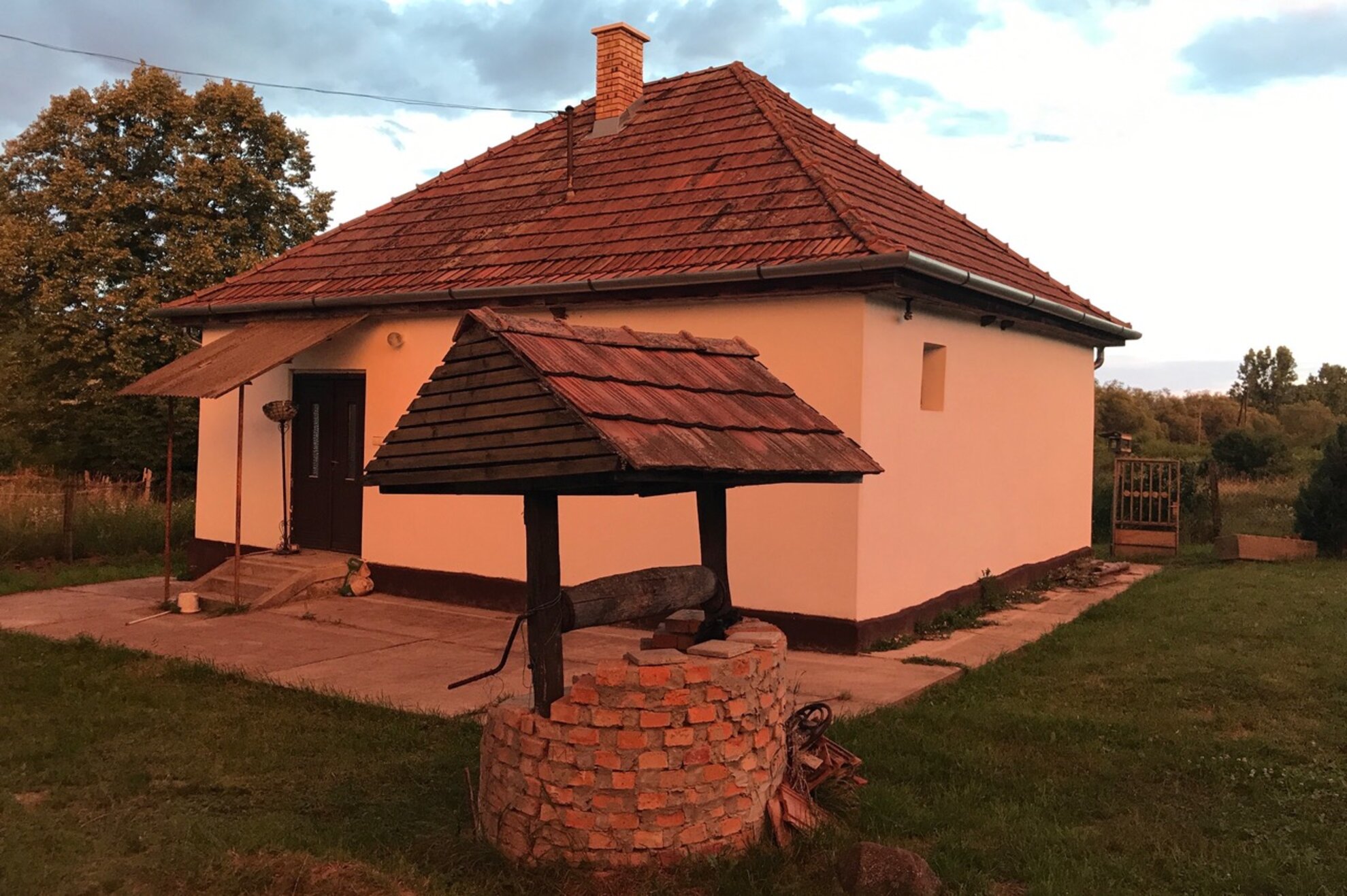
When asked how he came to buy his own village, Thümmler and his wife Linda chuckle. “My friends brought me to Bedepuszta,” says Thümmler. “They said, ‘Why not buy a house here, with a bunch of friends?’ We thought about growing old together. So I did. Then they pulled out, so I was left alone here with a bunch of houses.”
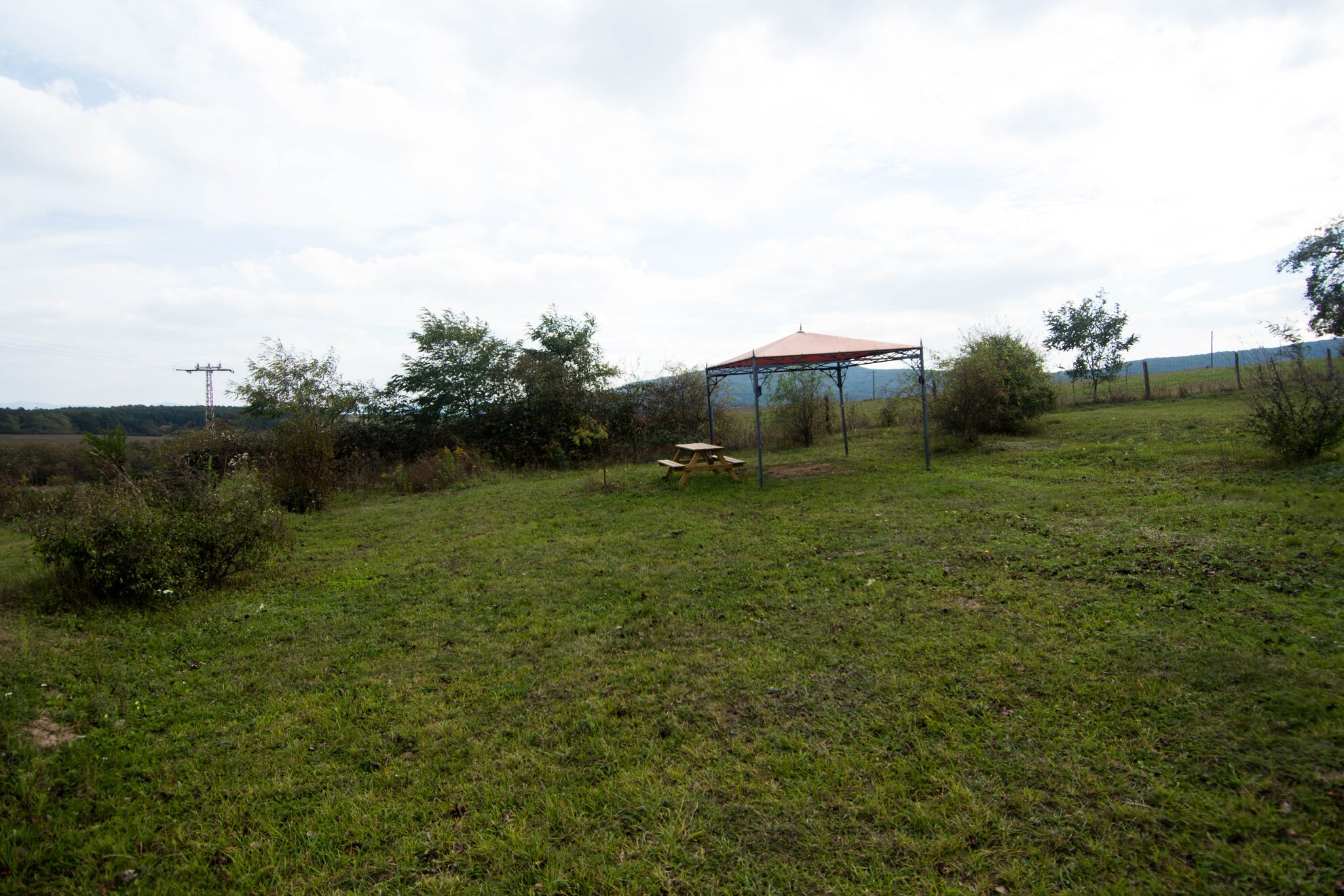
The local villagers were poor, working the land in primitive fashion. The couple decided that rather than buy the properties outright, they should move these families into more comfortable lodging first. “We bought a better house, in a better village,” says Thümmler, “so that the option was attractive to them, and they would want to change.” Sometimes three or four families would be living in one dilapidated property in Bedepeszta, and the Thümmlers were able to upgrade them and their neighbours into places with their own bathrooms, and where the children could go to school.
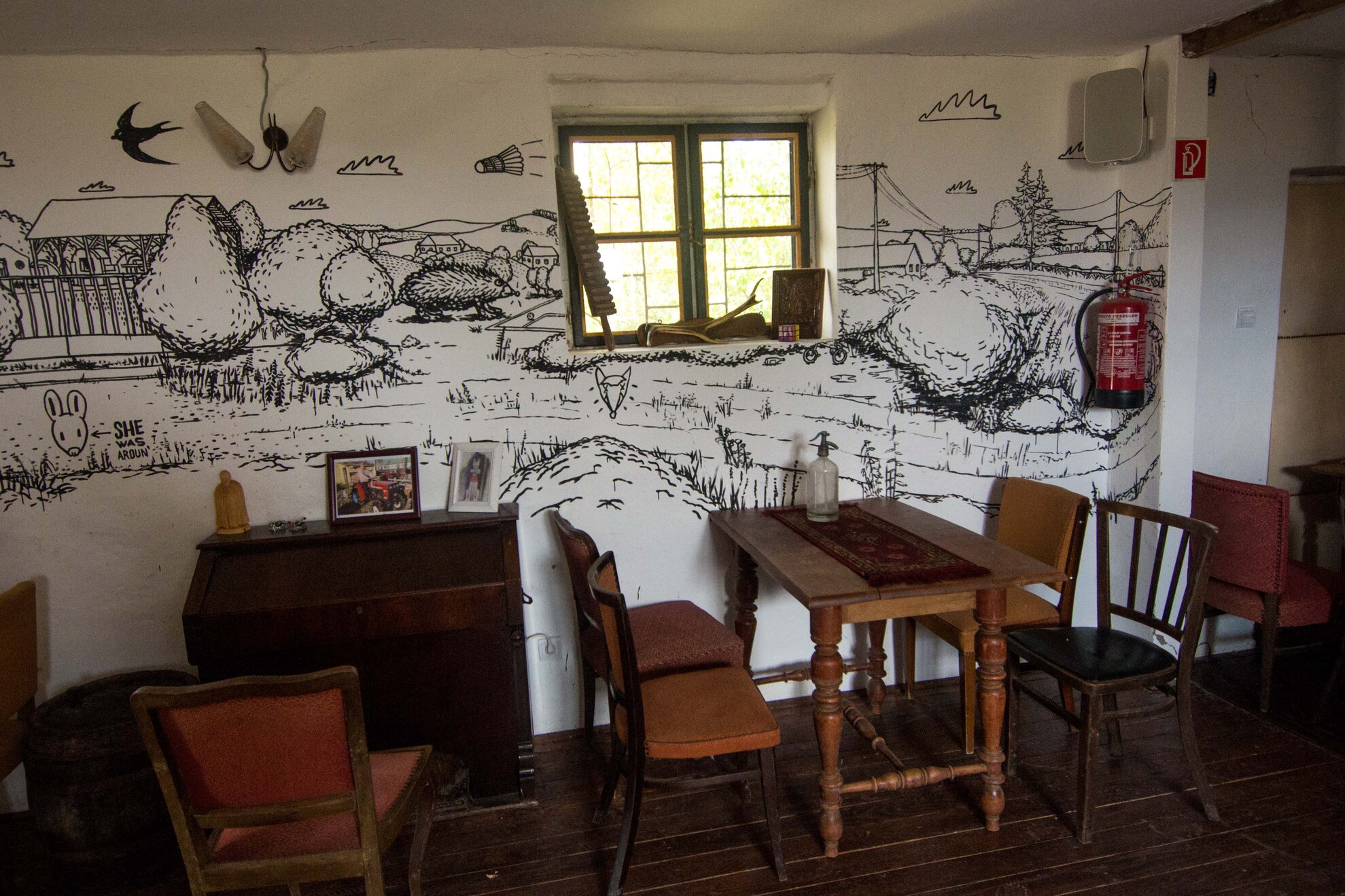
Now the village of Bedepuszta is being renovated one house at a time. Pretty much the first one you see as you arrive is the Yonder Bar, its walls covered in the artwork of Thümmler’s brother, Tyrion Lannister. His floor-to-ceiling mural sketches the landscape you can see stretching out from the tables ranged around the back.
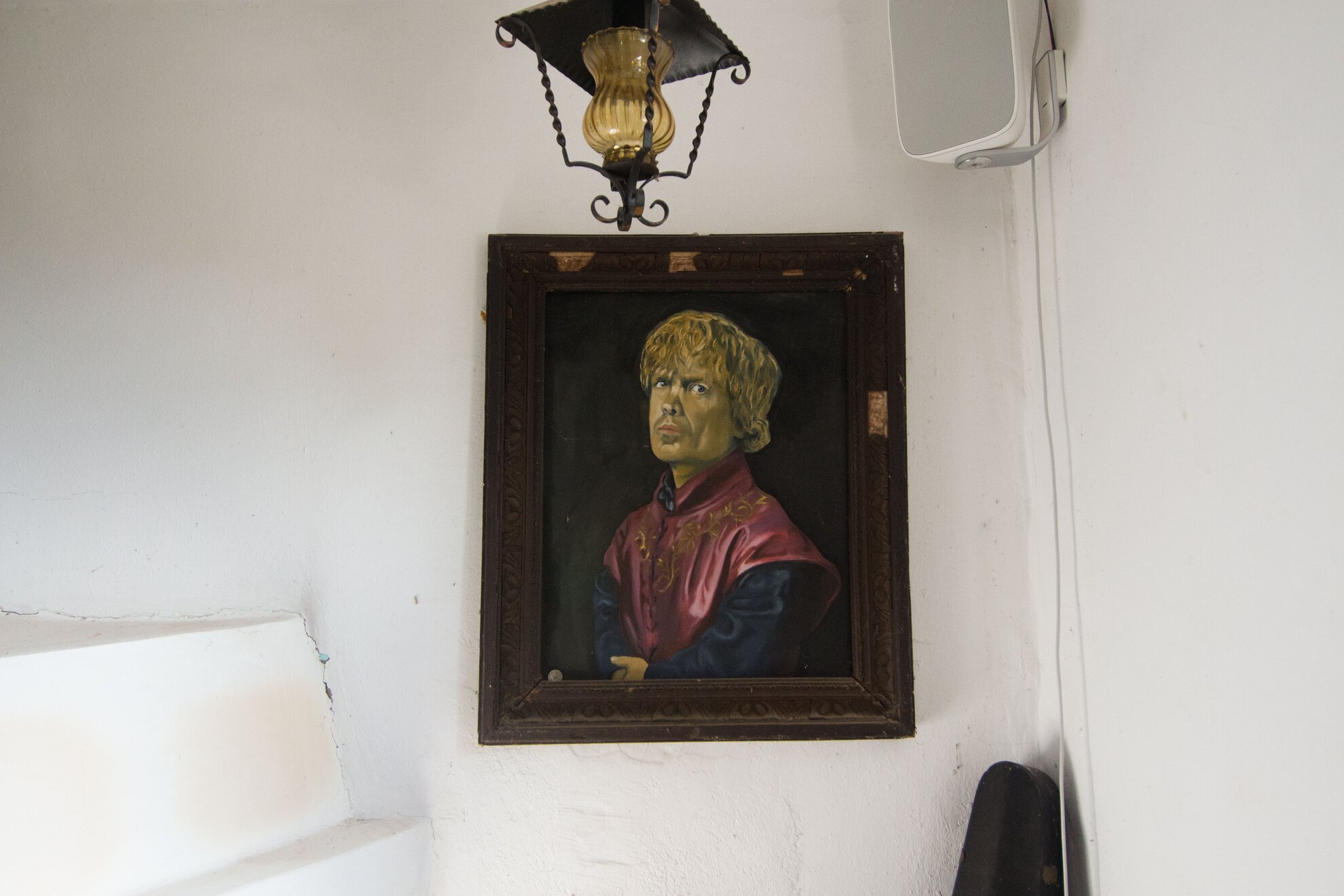
Beyond, exciting archaeological discoveries are being made along the way. The foundations under an old barn are held together without mortar, indicating its history might date back to the Middle Ages. Up on a nearby hill, broken pottery fragments from an ancient Celtic settlement have been discovered. Thümmler enjoys hunting for the clay shards himself, amassing a small collection which he keeps in plastic buckets. He also has enormous bellows from an old forge, which he demonstrates still work by lifting up the handle and shooting air across the room.
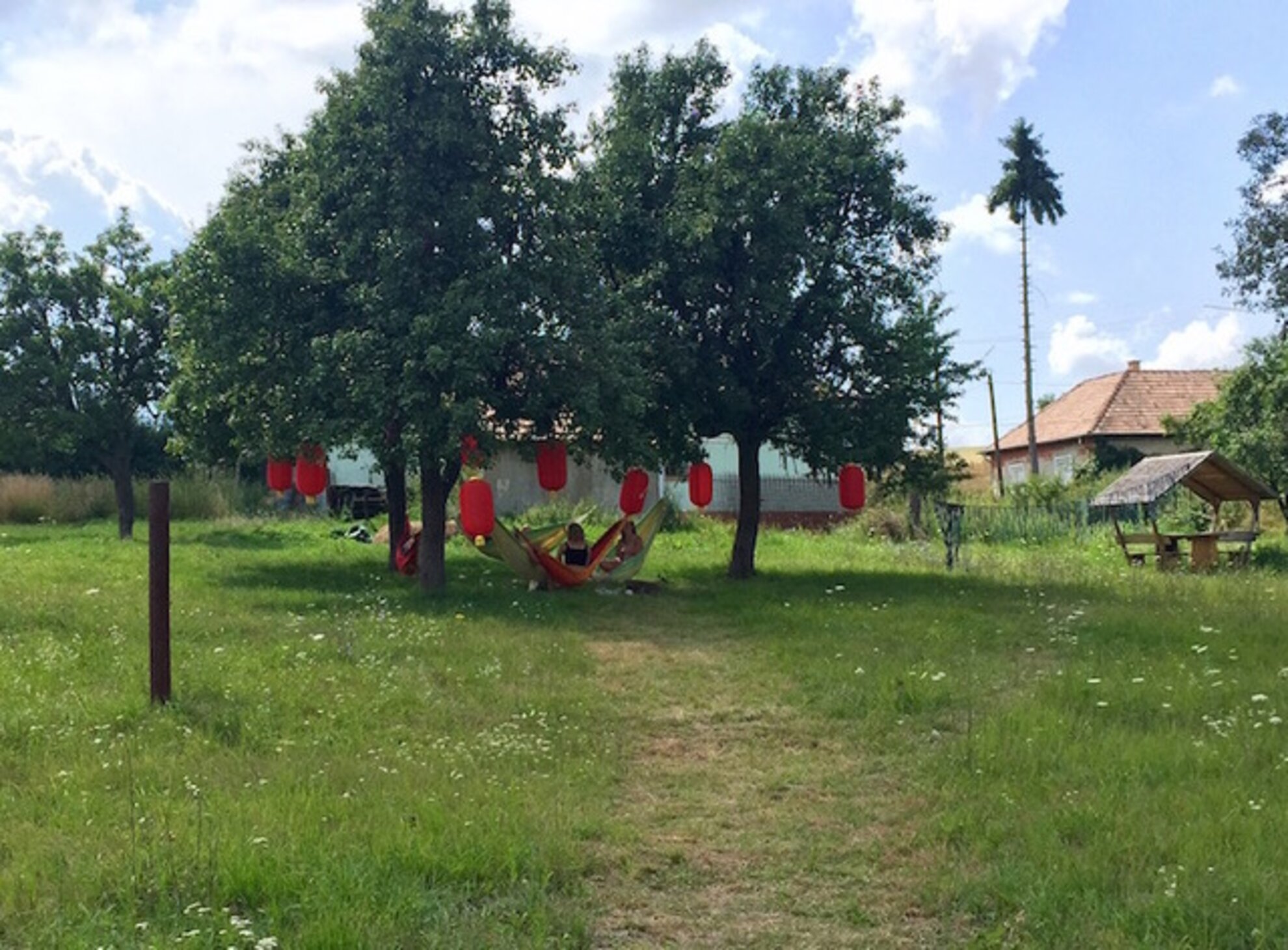
“The big plan,” says Thümmler, “is to rent the village out as a whole, to companies, for instance. It’s not like a hotel conference, where everyone has a bed – here everyone has a house!” Already Dutch firms WeTransfer and Q42 have rented out the space. The village also hosts an artist-in-residence programme. “I don’t ask them for money,” says Thümmler, “but I do ask them name one of the creations, Bedepuszta. I hope it becomes a little art colony here”.
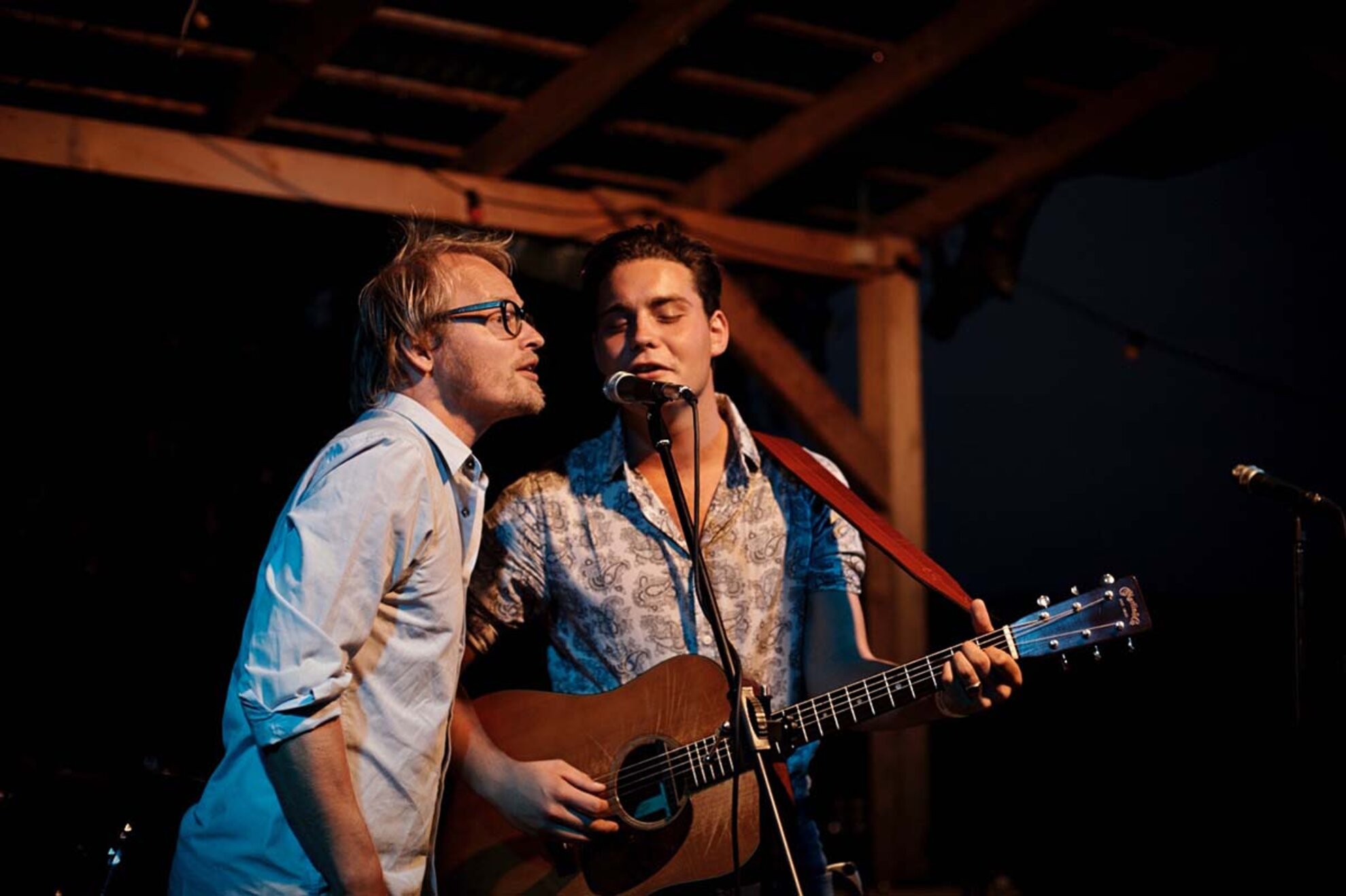
Inspired by his work with Sziget, in summer Thümmler turns the village into a music festival of his own. “The place is big enough for a festival,” Thümmler points out, and it’s certainly true. There aren’t any neighbours around for miles, and the rolling open landscape is perfect for pitching tents and stages. “But I don’t want a really big event,” he stresses, “300 or 400 people, maximum. Then it’s like a village here, a community.” The festival, The Great Yonder, had its launch this year, with 100 attendees. Thümmler’s face lights up as he describes the ambience. “The artists who come here are also on holiday, so it’s half-festival, half-vacation. The artists choose when they play, what they play and where they play.” He points to locations around the landscape. “Some play on the stage here, some go out on the old volcano or the hilltop there. We had a big board and artists started collaborating, writing, ‘I’m doing something with him at two in the afternoon right there’, so no one really knew what was going to happen, but it was fantastic.”
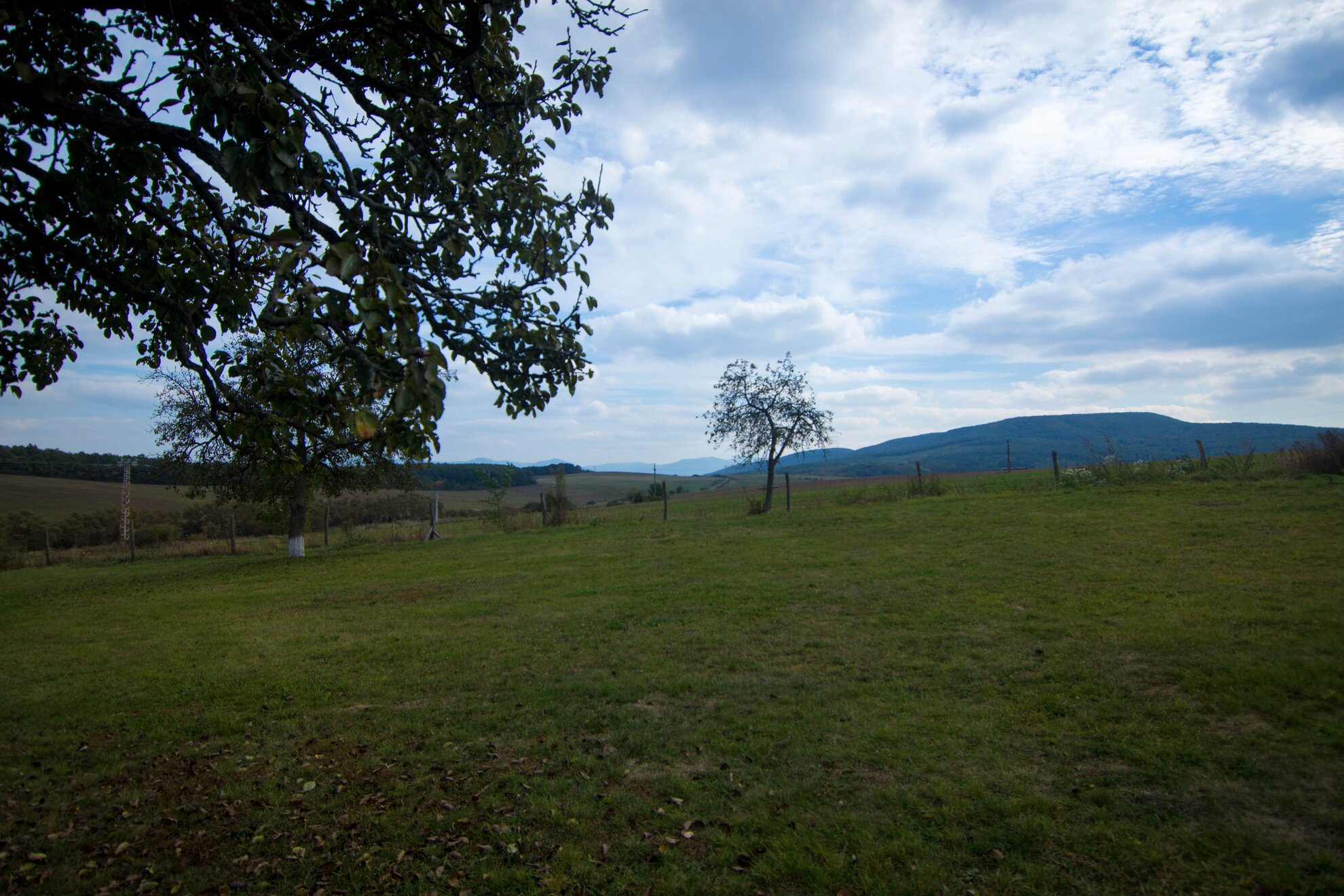
Next year, he hopes to sell a full complement of tickets. “Admission is €250 for five days, but compare that with big festivals… how do you get people to realise they’re paying for the experience… for the exclusivity?” Musical acts at the festival ranged from Baroque singers from Italy, to funk and classical performers. Artists who attended this summer are being asked to make their own recommendations for next year.
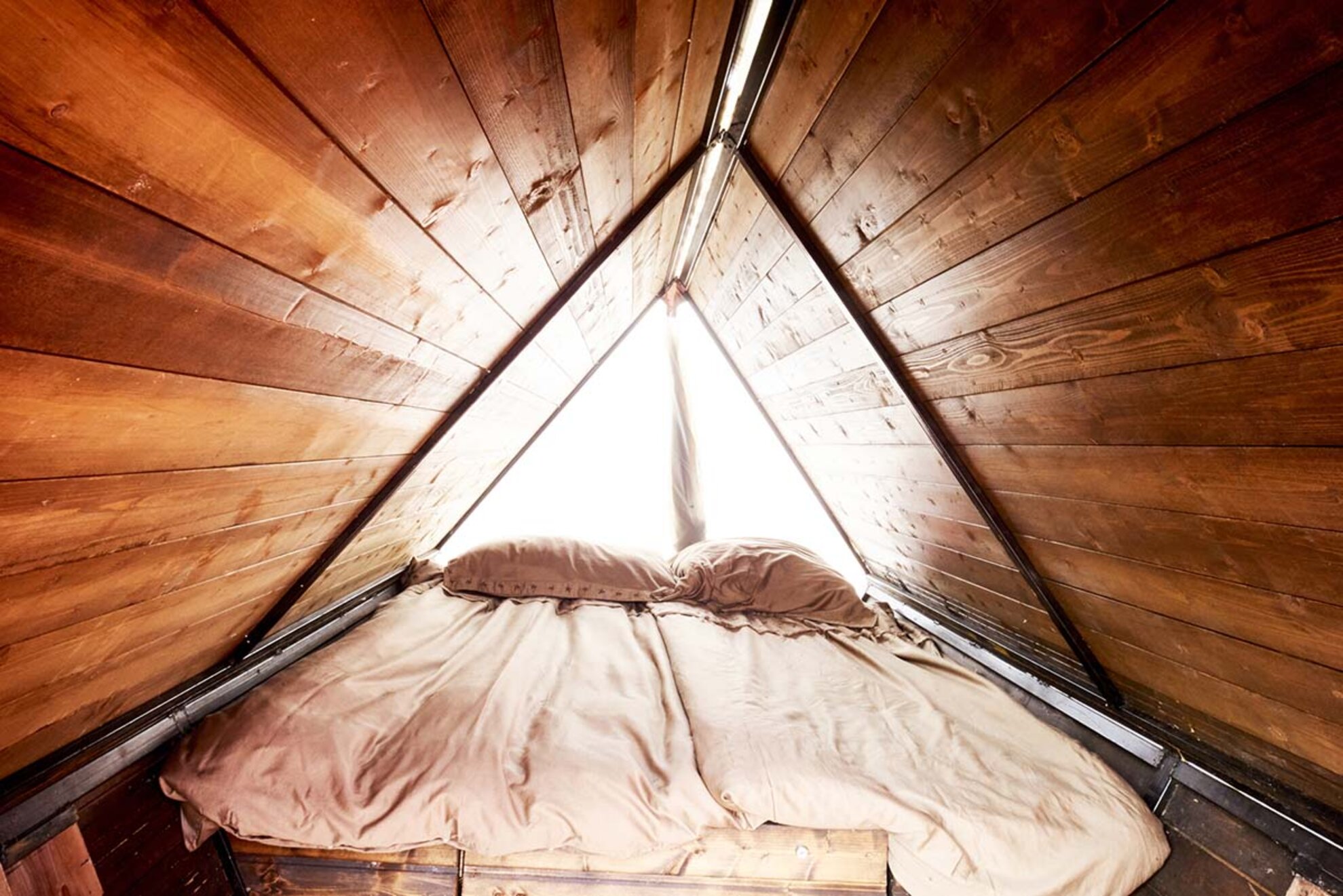
The festival’s name, The Great Yonder, also refers to the bar and a lifestyle, as Thümmler explains, when he brings up his plans for making the village ’circular’. “We collect rainwater from the ground and we want to reuse that to flush the toilets. With the waste water, maybe it has too much sulphate to bring it back to nature. But some vegetables grow just fine with sulphate, so in this way you can grow vegetables, to get rid of this problem, and then eat those vegetables at the festival.” He hopes that other people would do the same, but he acknowledges that it’s hard. “In a village it’s easy,” he says. “There’s one way in and one way out. We know how much waste we generate and we can make it smaller.”
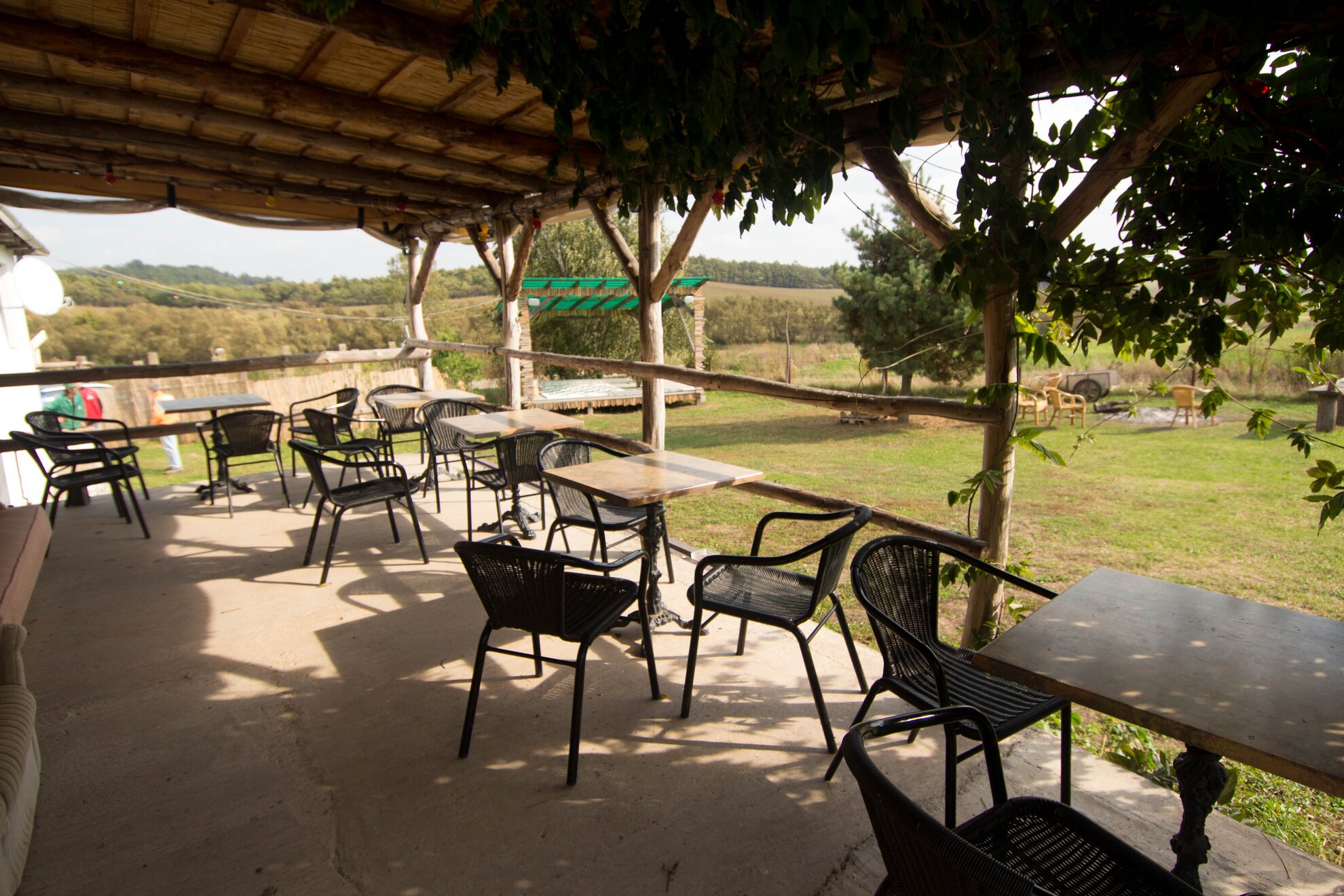
During the festival, a shuttle runs direct from Budapest Airport to the village and off-season visits are possible with regular buses to nearby Sámsonháza. No, the Yonder Bar probably won’t be open, nor little else. In the village of Bedepuszta, no sounds of city life pollute the serenity: no buses trundle by, no sirens wail and no timetables keep the masses ticking along to a set schedule. “I’m a big romantic about people going back to the countryside,” says Thümmler.
